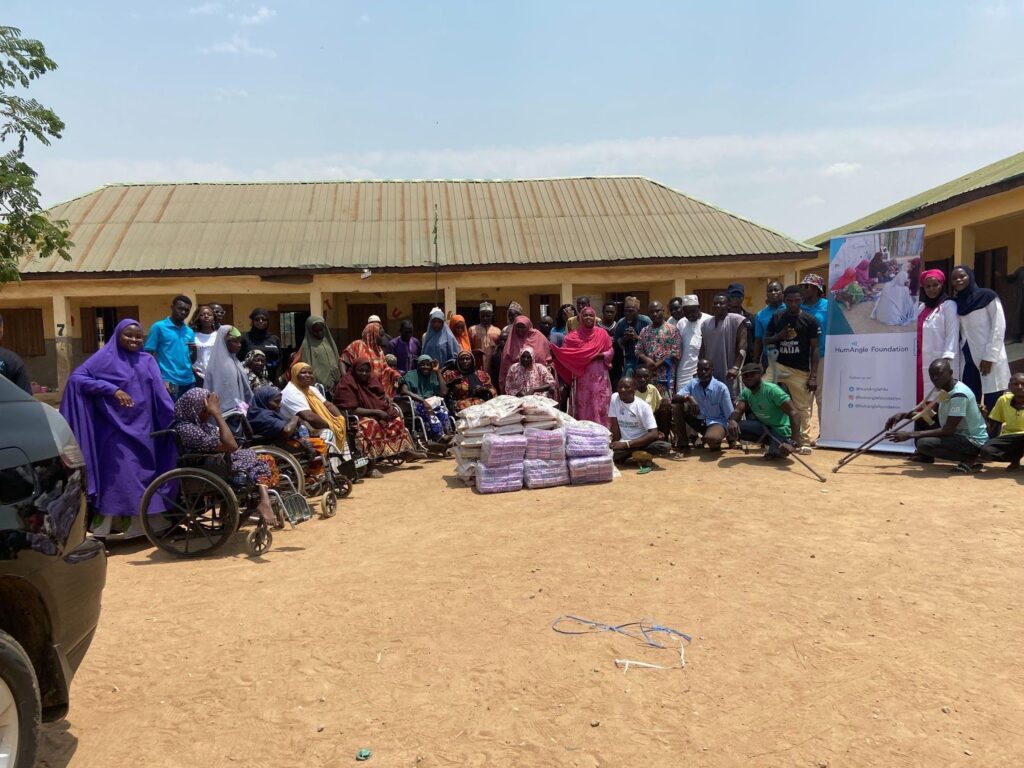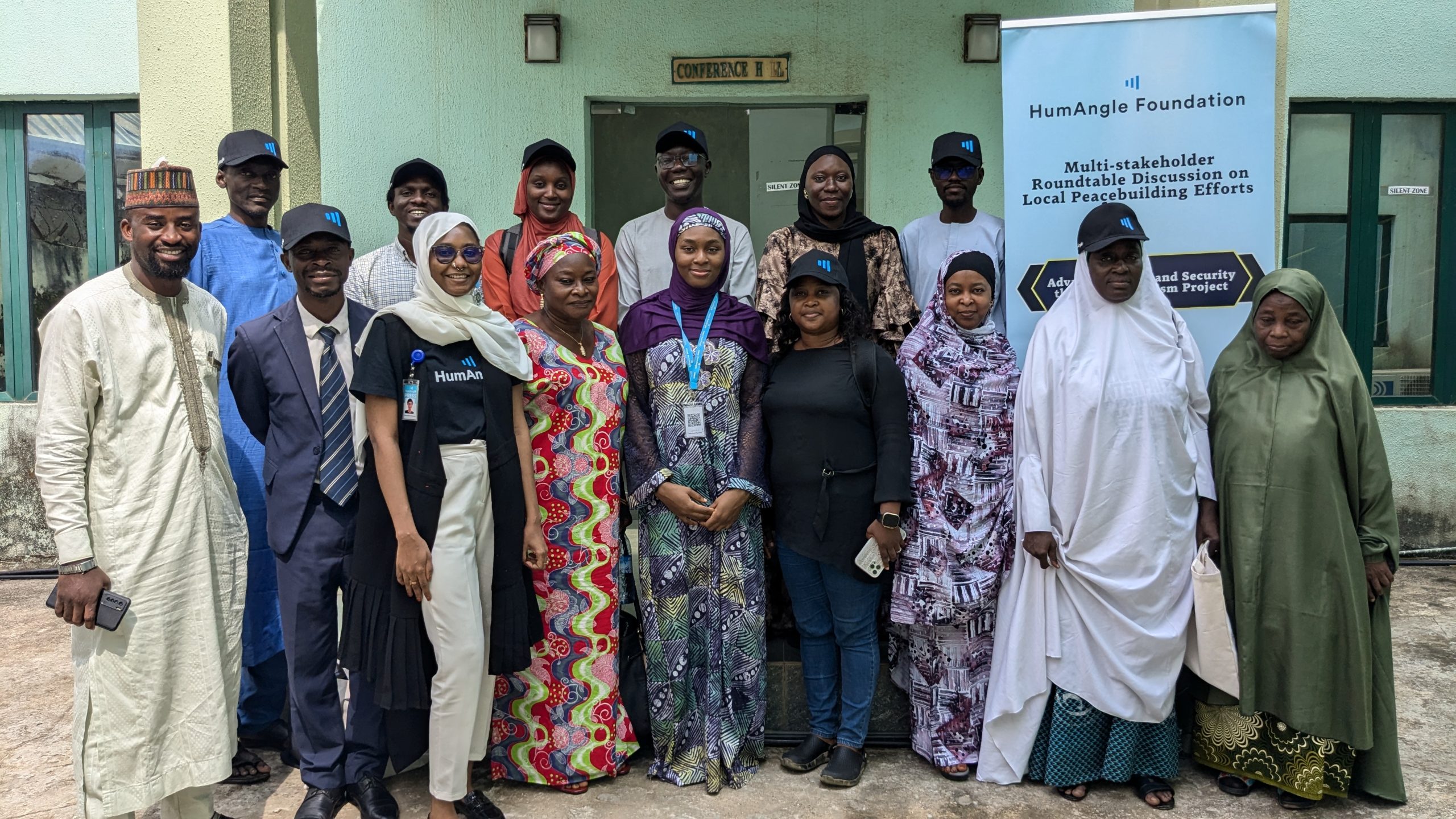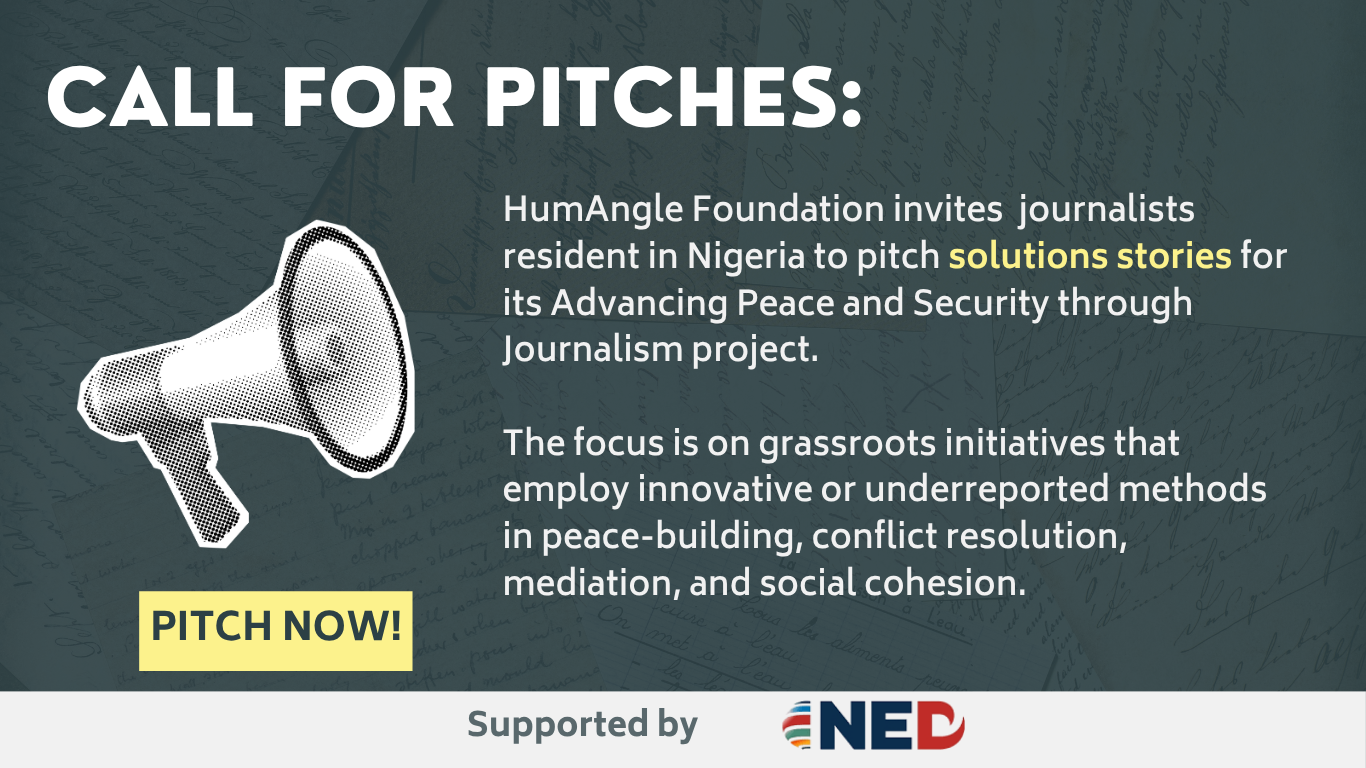The outreach activity also included educative sessions on menstrual and reproductive health, first aid and blood pressure checks for community members.
The HumAngle Foundation, on Thursday, 16 March, paid a visit to the Karmajiji Lepers Colony in Abuja, Nigeria’s capital, for an outreach activity as part of the organisation’s charitable Corporate Social Responsibility (CSR) mandate.
The colony is comprised of over 500 people with disability: men, women, and children who have been affected by, mostly, leprosy, a disease also known as Hansen’s disease, which is caused by a slow-spreading bacteria, causing long-lasting nerve damage and lesions to hands, feet and eyes, leading to disabilities when it reaches advanced stages without treatment.
Living conditions there have been known to be characterized by inadequate maternal care, poor access to clean water, and low means of livelihood.
During the visit, the people of the colony were presented with sanitary products, food items, and writing and drawing materials for the children. Sessions on menstrual and reproductive health, as well as general first aid, were also held for the members of the colony with additional health checks such as blood pressure for those who may have underlying health conditions. These were rendered by professionals.
The children were also engaged in calligraphy and sketching classes by HumAngle Media’s Head of Design, Akila Jibrin, to ignite interest in activities that they can use to empower themselves through vocations such as henna and signage designing.
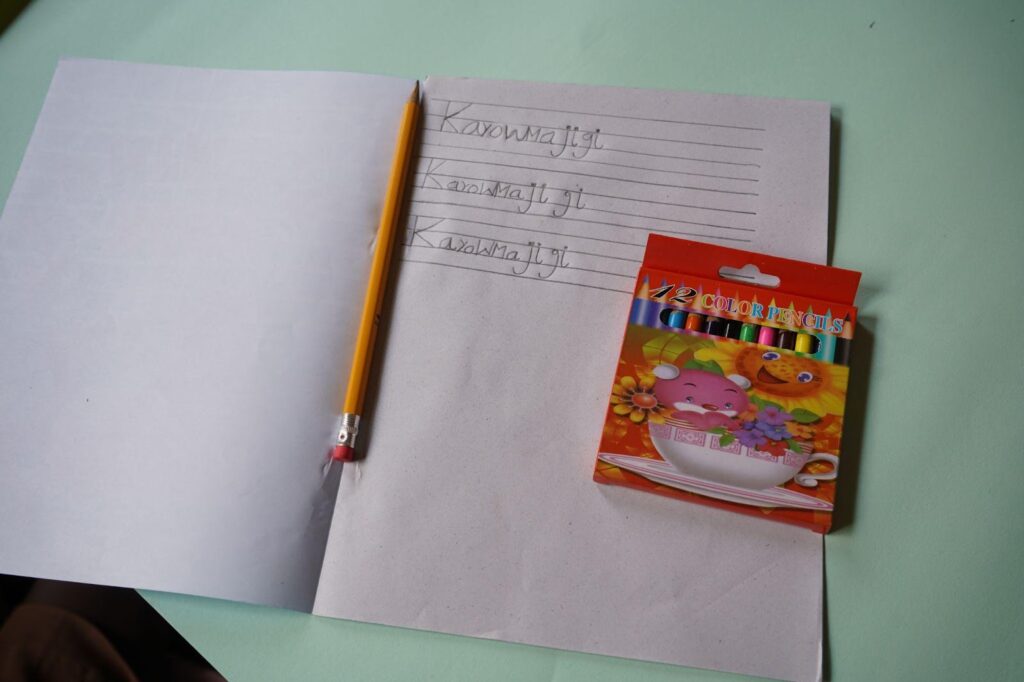
Oluwatosin Alagbe, Head of the Foundation, said “It is an eye-opening experience visiting persons who settled in the colony as people with disabilities. The women, children and men cluster the team interacted with were very engaging. They asked questions about taking care of themselves and their communities. The children, in particular, were excited to learn about calligraphy and drawing. HumAngle will extend this visit to other similar places and more. I am grateful to Folashade Adepoju for talking to the women about menstrual and reproductive health and to Drs Aisha Bello and Nabeelah Mahmood for carrying out basic health checks and first aid guidance for the men and women.”
Members of the community expressed their gratitude for HumAngle’s empathy towards them and how they went a step beyond donating, by also ensuring that they were equipped with the knowledge to take care of themselves, those around them, and their environment.
One of the participants of the session, Fatima, said that she has had to use rags when menstruating, but now with the reusable pads she received, she has a healthier and sustainable way of keeping herself clean.
“We don’t have the means to buy these sanitary pads every month. But now at least when the ones we have received today run out, we have an alternative which is more environmentally friendly since it is reusable,” she said.
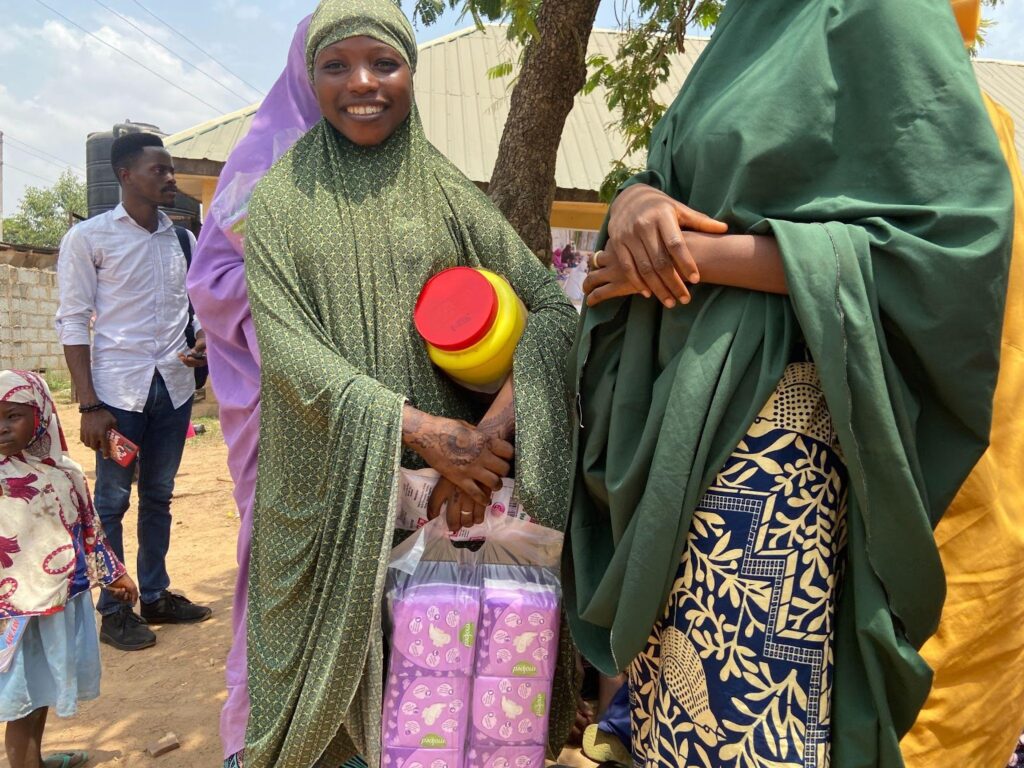
“The blood pressure checks done by the doctors is something we ordinarily don’t have access to. The doctors told us that a number of us have high blood pressure levels. But they also told us what to do to keep it within the normal levels and what medication to ask for when we go to the pharmacy if we feel certain symptoms. At least, now we know how to keep our blood pressure in check. We definitely won’t be forgetting what you’ve done for us in a hurry,” Adamu Musa, one of the community members, said.
“Your work as a charity organisation stands out from the others because the whole team are young and full of energy and have assisted the less privileged like us so wholeheartedly, with humility and empathy,” he added.
Hajiya Rabi said her main takeaway was on how to keep her environment clean to minimise the risk of disease and infection and also the dietary tips she was given by the medical personnel to keep her blood pressure within the normal range.
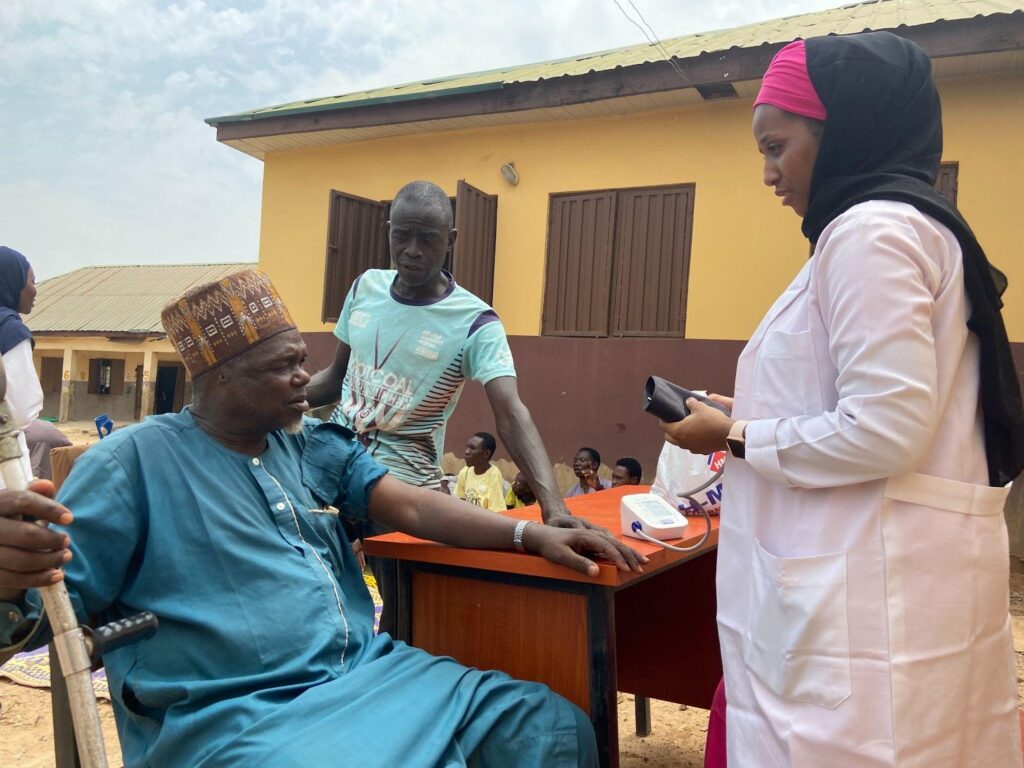
“The doctors didn’t just stop at simply taking my blood pressure, but engaged me by asking questions about my life and troubles, ensured I understood the risks of being hypertensive, and advising me on what I should and shouldn’t do to stay healthy. It was the show of concern that particularly pleased me,” she added.
“What we have learnt today is life-saving knowledge. With Ramadan approaching, we now know what to avoid to prevent suffering from ulcers and the importance of not relying on medication unless absolutely necessary. We also learnt how to help one another in emergency situations and how to respond during a fire,” says Ibrahim Haruna.
“Not all NGOs would come and interact with us the way you have. Most will drop their gifts and be on their way. But you went the extra mile. That alone is enough for us,” he added.

